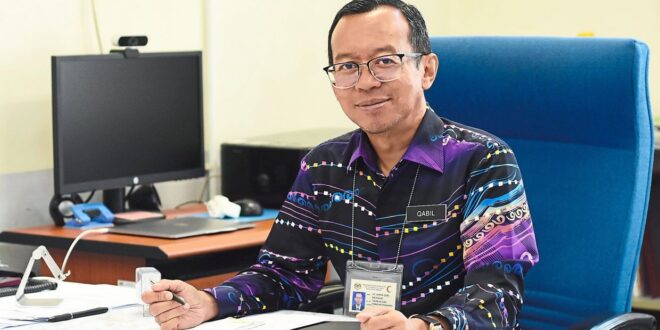IPOH: Hospital Bahagia Ulu Kinta is seeing increasing numbers in daily outpatient treatments, says its deputy medical director Dr Ahmad Qabil Khalib.
The hospital, Malaysia’s largest psychiatric centre, provides about 15,000 outpatient treatments annually, he said.
Based on data from 2019 to September last year, he said the hospital recorded more daily outpatient treatments but a decrease in warded patients.
“We receive about 1,600 warded patients annually and provide about 15,000 outpatient treatments.
“About 55% of the warded cases are due to psychosis, while 25% are drug-related cases and 15% (are emotional cases). However, all the categories have shown a decreasing trend,” he told The Star.
Located in the heart of Tanjung Rambutan town, the hospital is among the four mental hospitals in the country. Its construction was completed in 1911, making it the oldest psychiatric institution in Malaysia.
Currently, it is taking care of more than 1,000 warded patients.
“Our youngest warded patient is a 16-year-old student who suffers from depression,” Dr Ahmad Qabil said.
He said the hospital offers a holistic approach in its treatment of warded patients.
“Our patients, be it warded or outpatient, have various types of illness that require different approaches. We have treatments including medicines, rehabilitation, physical activities and spiritual guidance.”
As for those who seek treatment at the specialist clinics at the hospital, he said about 40% are suffering from psychosis, 30% are depressed and 10% have anxiety problems. All categories have shown an increasing trend, unlike with the warded patient figures.
“There has also been an increasing number of children and teens coming to the clinics, or about 500 annually. Based on our data, we can see that many of our young patients are diagnosed with neurodevelopmental disorders such as autism and attention deficit hyperactivity disorder (ADHD).”
Dr Ahmad Qabil believes the rising number of those seeking treatment could be due to greater awareness of mental health.
“Years ago, if a four-year-old child had difficulty speaking, the common perception was that the child was slow and lazy. But now, we can see that parents are more aware of their children’s development, so they send their children with speech difficulties to specialists and seek treatment.
“As we are a specialist hospital, we get cases recommended by psychiatrists or doctors from other hospitals. The patients will then be brought to an entry-level ward where they will be monitored for a certain period before they are transferred to another ward based on their condition.”
“There are many types and levels when it comes to psychosis. The common term ‘crazy’ usually refers to a person suffering from psychosis, or having lost the ability to think normally. Among the illnesses under psychosis are schizophrenia, drug influence, and more. Conditions such as bipolar and depression are classified under mood disorder.
“We will monitor the patient’s behaviour first. If they show harmful behaviour such as destroying furniture or harming others, they will be warded. For those who show mild symptoms, they will be allowed to return home with prescribed medications and placed under their family’s supervision,” he added.
There are 86 wards for patients including for the elderly, and the forensic ward, which is for those ordered by a court to undergo psychiatric evaluation, he said.
Hospital Bahagia Ulu Kinta is located on 202ha of land with much greenery. Besides a museum, there are also farms run by patients under supervision.
“As the hospital opts for a holistic approach, we have a section of the hospital for agro-therapy where patients raise farm animals and plant trees, harvest them, and even sell the produce at our small farmer market and a drink stall located inside the premises,” said Dr Ahmad Qabil.
The plants include bananas, eggplant, lemongrass and sugar cane.
“We have ducks and chickens as well. Our patients also take care of the fishing ponds that outsiders can visit with appointments.”
He said the patients will be equipped with skills to prepare them once they are discharged.
“We also have a programme where patients are allowed to stay by themselves within the hospital compound while working outside. These patients go out to work as guards, restaurant assistants or cleaning crew. Their condition has improved, which means they can go out and work, but they still need medication from time to time.
“It is important to us that each patient receives holistic care, including prepping them with social skills,” he said, adding that the hospital has over 1,500 staff.
Dr Ahmad Qabil said visitors were usually surprised to see the landscape.
“We have universities and school students, even companies, visiting the hospital. They were surprised to see what the hospital looks like,” he said.
 BeritaKini.biz Berita Viral Terkini di Malaysia
BeritaKini.biz Berita Viral Terkini di Malaysia





